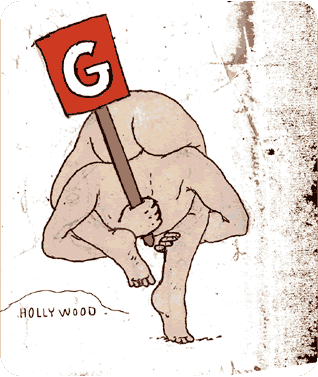
Apart from a record-setting box office, 1999 will go down in history as "the year of the censor" in American cinema. From Spike Lee's Summer of Sam to South Park: Bigger, Longer, and Uncut to American Pie and Eyes Wide Shut, it seems that most of the R-rated box office fare had to undergo some nips and tucks before reaching the multiplex.
In response, movie critics, filmmakers, and studios have launched a concerted attack on Jack Valenti, President of the Motion Picture Association of America (MPAA), whose subdivision CARA (Classification and Rating Administration) hands down film ratings. They've charged the MPAA with watering down R-rated fare, being more lenient with violent content than with sexual content, and engaging in various forms of censorship discrimination -- sexist, racist, and otherwise.
Valenti, for his part, insists that "the audience to whom this ratings system is directed -- i.e., the parents of America -- like it, and they use it. Movie critics don't use it -- most of them don't have children, or at least the ones that have been giving me a bad time." And he's standing behind the seven women and five men, all residents of California's San Fernando Valley, who watch movies for the MPAA and rate them for content.
Even though we, the public, can't know the identities of these people who decide a movie's rating fate, we do know some bits of biographical information: Four are homemakers, one is a postal worker, one is a "freelance manicurist," and they have 32 children between them.
So, basically, if you're a libertine, atheist, socialist, or just someone who enjoys non-procreative sex from time to time, these 12 Blockbuster card-carrying, Minivan-owning, Barney-dependent freaks from Pleasantville are your worst nightmare. And without their stamp of approval, a film may bypass theaters altogether and end up on Cinemax at 3 a.m.
Exaggeration, you say. Well, just to prove the antiquated nature of the MPAA's moral universe, what follows are some select judgment calls that the above-mentioned 12 bourgeois cretins have made regarding some indie films.
Black and White (Palm Pictures, release date TBA).
Palm Pictures has garnered some media attention by converting their Web site into a referendum on the ratings system. The site features both the NC-17 and R-rated versions of a scene of a black guy getting it on with two white girls. The MPAA insisted the scene be trimmed for an R rating. But Hooman Majd, head of Palm Pictures, revealed to me in a recent interview that another scene in the movie featuring a white boy and two black girls, all of them completely nude, was left untouched by the censors. The implication: A black guy and two white girls equals miscegenation and/or rape, but in any case transgression; one white guy making it with two black chicks is just (white) boys being boys.
Better Than Chocolate (Trimark Pictures, opened in August in select cities).
"My problem with the MPAA is that beyond telling you what your rating will be, they dictate to you what your marketing will be as well," complains Dennis O'Connor, Senior VP for Theatrical Marketing at Trimark. In the case of Better Than Chocolate, the MPAA rejected an ad depicting two naked women embracing, not because of the nudity but on account of the lesbianism. "The MPAA is out of touch, and with Chocolate they were basically being homophobic," concludes O'Connor.
Luckily, Trimark is an independent distributor -- one of the few left. It, therefore, has the option of releasing its films unrated -- which it did with the sexed-up and controversial French film Romance. But every time Trimark chooses to rate one of its films, it is subject to the arbitrary whimsy of the ratings board.
For instance, O'Connor recently sent the MPAA the trailer for the upcoming Frank Whaley film Joe the King (because, you guessed it, the MPAA must approve movie trailers too). The trailer contained two separate mentions of the word "ass," and the MPAA made Trimark drop the second ass reference. Why? According to O'Connor, the MPAA's explanation was typically shifty: "We consider the word 'ass' on a case-by-case basis."
Peter Braunstein writes about film and pop culture for the Village Voice, and is currently co-editing an anthology on the 1960s counterculture.
